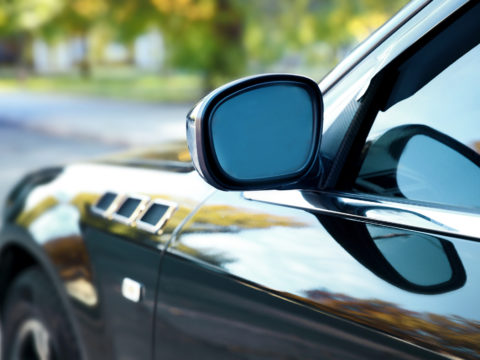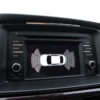If you are in the market for a used car in 2022, you will want to make sure you get the best price. There is often room for negotiation when purchasing a vehicle. However, the last thing you want to do is end up causing offense and ruining your chances altogether. So, just how much do dealers typically go down on used cars?

Contents
How Much Do Dealers Usually Go Down On Used Cars?
There are a number of different factors that will impact how much a car dealership is willing to go down on the asking price, such as how desperate the dealer is to sell, how much homework you have done, and how popular the make and model of vehicle is.
What percent can you negotiate off a used car in 2022?
If you have done your pricing homework, you should have a fair idea of how much you are willing to pay. Start by making a realistic offer – around 15 to 25 percent lower than the maximum you are willing to pay. This gives you room to negotiate effectively. Most car dealers will ultimately be willing to knock at least five percent off the asking price.
How much do dealers markup used cars?
When you purchase a used vehicle from a car dealer, they are going to be selling it at a profit. The markup varies, yet it usually ranges between 25 and 45 percent.
How Do You Get A Car Dealer To Come Down On Price?
There are a number of different ways you can get car dealers to come down on the manufacturer’s suggested retail price. Here are five tricks to consider:
Use mileage as a leverage
One place to start is with the mileage. After all, this is one key area whereby used cars differ from new cars; they have been driven!
Car dealerships know that a lot of mileage results in the value being driven down quite considerably. So, you can use the mileage to help you bring down the price point.
Find out what other local dealerships are offering
Do some research regarding the market value for the make and model of vehicle you are considering, with similar mileage. Being armed with this information shows that you have done your homework. The dealer will know that there are other places where you can purchase the car if they are not willing to put a good deal on the table.
Keep your maximum purchase price a secret
Once you start talking car prices with the dealer, be mindful about what you say. Don’t give away the game by revealing your top price. At the same time, it is important to be polite and respectful. No one wants to sell to someone who is rude, after all!
Use any car faults to haggle a better price
Assess the car to see if there are any faults. Examples include an incomplete service history, moderately worn tires, chips, dents, and technical faults.
These sorts of issues may not prevent you from wanting to purchase the vehicle. After all, it is natural for there to be a few problems that need to be resolved when buying a used vehicle.
However, what they do offer you is the chance to negotiate a better deal than the sticker price.
Pay cash for the car (but don’t reveal this from the off)
Finally, consider paying in cash for the vehicle, as this can help to negotiate a better deal. A lot of dealers prefer this to someone making a monthly payment.
However, rather than leading with a cash deal, start the negotiation process and then suggest paying in cash if they provide you with a special discount.
Things To Consider When Negotiating For A Used Car
There are a number of different things to consider when trying to secure a used car below market value, including:
Type of vehicle
It is important to do your research regarding the vehicle in question. Naturally, some models are more popular than others. If there is limited supply and high demand, prices will only increase. Therefore, it makes sense to find a good balance between a car you love and a car that makes sense economically.
Vehicle history
Car buyers should find out everything about the vehicle’s history. The last thing you want to do is end up purchasing a car that was involved in a crime, for example.
If there is something in the vehicle’s history that is off-putting but not a deal-breaker, you should be able to negotiate a much better deal.
The car’s valuation
Naturally, the value of the car will play a huge role in your purchase. There is a simple calculation you can use: calculate the per mile depreciation by dividing total depreciation over a period of 10 years by 110,000 miles.
It’s crucial to have a clear understanding of your car’s market value before you step into the negotiation process. You can make use of online platforms that offer car value calculators, helping you to determine a fair and competitive selling price. This calculation is typically based on factors such as the make and model of your car, its condition, mileage, and the demand in the used car market.
It’s important to consider other associated costs when selling your car. These may include the cost of any necessary repairs or improvements to make your car more saleable, advertising costs if you choose to promote your car on multiple online platforms, and potential car shipping costs if your buyer is located in a different geographic area. If you need to ship a car, it’s crucial that you look into some reliable car shipping companies that offer safe auto transport and helpful information like car selling. By doing so, you can manage the process efficiently and cost-effectively. This will help you avoid any unexpected costs or delays affecting your net profit from the sale.
The down payment amount
As is the case when purchasing a new car, you may be able to get a discount if you offer a make a significantly bigger down payment than required.
Your credit score
It is also vital to note that your credit history may also have an impact, especially if you want to agree on a monthly payment scheme.
If you have a history of not making payments on previous finance deals, you could find that the dealer will charge you more to cover the risk.
The condition of the vehicle
The car market is incredibly varied. One six-year-old vehicle will not be the same as another; it depends on how the previous owner has cared for the car and the mileage on the clock. This is why you need to assess the car’s condition carefully.
How you are going to pay for the vehicle
Whether you are taking out an auto loan or paying upfront will also make a difference. If you are paying upfront, you may be able to negotiate a lower price.
If you are taking out a loan, you need to make sure you are happy with the monthly repayments and the terms and conditions of the loan.
You might also be making a trade-in on your old vehicle to reduce the cost of your new car. Be sure to find out how much your vehicle is worth to avoid getting ripped off!

How To Negotiate Car Price When Paying Cash
As mentioned, you may be able to negotiate a much better deal if you are paying for the car in full, in cash. However, it is important to make sure that you approach this in the correct way.
Firstly, do not reveal that you are going to be paying in cash straight away. Instead, you should start the negotiation process to get a feel for how much the car salesman will be willing to budge.
If you feel like the car salesperson is not budging on the cost, suggest that you would be willing to pay in cash if they would make you a better offer. You should never play all your cards at once!
What To Do When The Car Salesman Won’t Negotiate
If the car salesman won’t negotiate, it can put you in a bit of a sticky situation. It is important to think about your position.
Firstly, do you really want this specific car, and this car only? Or, would you be happy to explore the market and find a better deal on your new car? Remember, there are other dealerships!
Alternatively, think about the maximum price you would be willing to pay. Does the current price exceed this? If not, you may be disheartened about not being able to get a discount, but if the car lands within your price range, why not take it?
Of course, you could always walk out the door in the hope that the car salesman will change his mind. However, there are no guarantees, so this is a risk to take.
How To Tell If You Have A Good Deal On A Used Car
To determine whether or not you have got a good deal, you need to do your homework. The good news is that this is easier than it ever has been, thanks to the internet. You can easily research prices online to discover what other used vehicles of the same make, model, and condition are going for.
Of course, the price can differ based on location, so you will need to factor this in. Consider shopping around other dealerships in your local area to get a better understanding.
Best Time To Buy A Used Car In 2022
It is believed that you are most likely to get a better deal on a used car between the months of June to August and November to January.
However, if you use the tips and advice that we have provided in this guide, you should be able to secure a quality used vehicle no matter the time of year!














